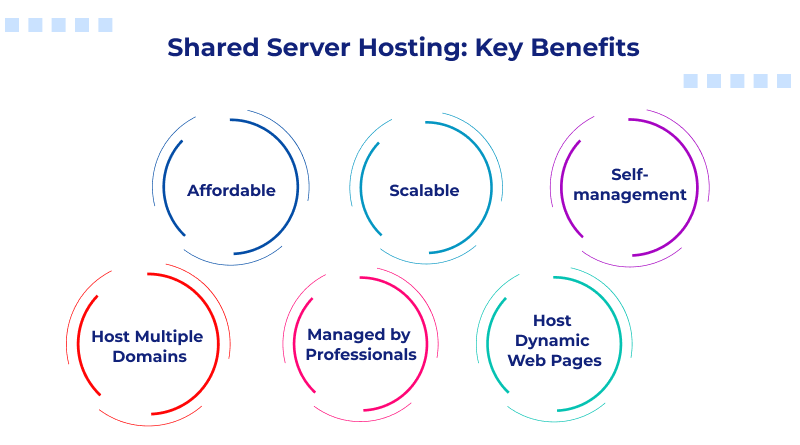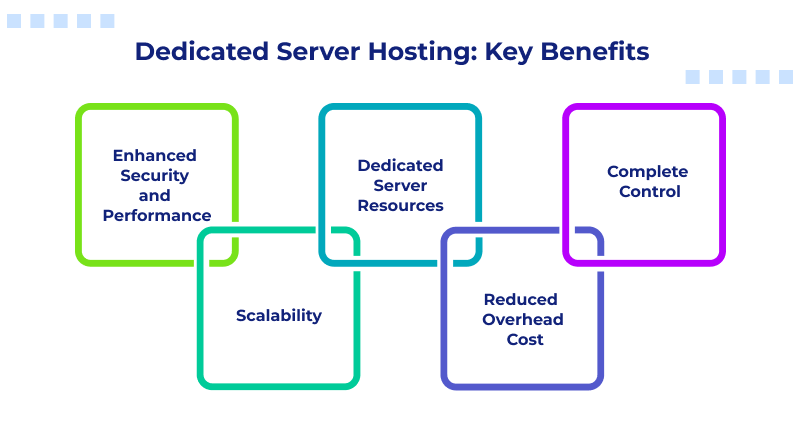A client-oriented online presence is nearly indispensable for modern businesses. Websites offer a crucial platform for venturing into the digital marketplace or to provide clients with timely information regarding their offerings and services. The level of website performance can be the deciding factor between an organization’s success and failure.
While websites can generally be deployed and managed using in-house hardware and personnel, many organizations prefer to adopt a hosting solution for added convenience and productivity. Switching to a reliable hosting service provides an easier, quicker, and more efficient way of hosting a website without incurring any capital expenditure or expending technical intellectual capital.
Businesses searching for a web hosting solution have several choices available to them. Two of the most prominent selections are either a shared server or a dedicated server. Each type of server has advantages that make it suitable to meet specific business objectives. Whether you’re considering WordPress hosting or other hosting options, let’s evaluate the difference between dedicated and shared servers to help you choose the most influential web hosting solution.
What is a Shared Server?
A shared server is one physical server that hosts several websites concurrently. A web hosting provider can maximize its hardware resources by hosting hundreds or thousands of websites on one server. Customers can easily implement a website using a shared server with no upfront investment in hardware and less technical expertise.
A shared server is like sharing a workspace—you get ample space to work at, but the overall resources are shared with others, which can affect performance. Sharing resources can sometimes be frustrating and result in substandard performance levels.
The restricted resources of the underlying physical server are being used to concurrently address the changing needs of many customers. At times, resources may not be available to efficiently deal with the traffic spike or exceptionally large data transfers. In exchange, businesses benefit from a moderately priced web hosting solution.
Shared Server Hosting: Key Benefits

1. Affordable
The most cost-effective solution in the shared hosting vs dedicated hosting debate is shared hosting. The hosting plan’s charges are spread among them as many people contribute to the server’s cost.
2. Scalable
New online businesses can begin with a shared hosting plan and seamlessly upgrade as their business expands.
3. Self-management
With a shared server, getting started is quite easy. Most web hosting providers offer a control panel through which you can administer your website. The administrative activities and any monitoring operations associated with streamlining a server are managed through this user-friendly interface.
4. Host Multiple Domains
You can add as many websites as you need in your user directory; all you have to do is ensure that the domains you buy are connected to it. One individual, for instance, might have several domains for their business website, personal blog, or hobbyist activities. This is where shared hosting is valuable.
5. Managed by Professionals
Shared hosting is a hassle-free solution. By managing basic server management responsibilities, your host will relieve the stress of maintaining your server. Web management is the most feasible solution unless you are eager to deploy your server. With a shared server, you can leave the hosting of your website to the experts.
6. Host Dynamic Web Pages
Dynamic websites modify their look depending on who is browsing them. Social media platforms such as Facebook, Twitter, and Quora are well-known dynamic websites, and WordPress is a popular dynamic content management system (CMS). Alternative programming languages such as Perl, Python, and PHP, which can all operate on a shared server, are used in dynamic web pages and CMSs.
What is a Dedicated Server?
A dedicated server uses the resources of a single physical server to host an organization’s website. It reduces the use of pooled resources that come with a shared server. The business owner does not need to worry about the users impacting resource availability or server performance. Businesses using dedicated servers can quickly scale up during peak workloads. With no other tenants contending for resources, a dedicated server allows clients to seamlessly recognize areas that need optimization depending on their precise needs. Server resources like bandwidth, memory, and RAM can be scaled up without worrying about sharing them, making the dedicated server and shared server options distinct in terms of performance and control.
Dedicated Server Hosting: Key Benefits

1. Enhanced Security and Performance
How can you raise your website or application’s uptime to the highest possible standards? Well, it can be achieved with the help of a dedicated hosting service. It ensures that you are not sharing your system resources with any detrimental software or spammer. A dedicated server offers robust security, which is why it is essential for businesses that conduct transactions over FTP or SSL.
2. Scalability
A dedicated server offers uniqueness as you customize it to match the variable business demands of your clients regarding server resources. A dedicated server can be ideal for you if you need a fully optimized server platform.
3. Dedicated Server Resources
Selecting a dedicated server offers access to all of a server’s resources. As no other applications are sharing your space and blocking server resources such as RAM and CPU, your dedicated resources will not decelerate. When you choose dedicated hosting, you get sole access to the server’s bandwidth.
4. Reduced Overhead Cost
If a business needs dedicated hosting but lacks the time to manage a server, affordable dedicated hosting is a cost-effective solution to access the server’s offerings. Renting dedicated server hosting helps in the management of server resources, reducing an organization’s overhead..
5. Complete Control
One of the most significant benefits of a dedicated server is that it gives you complete control over the server, making it a highly recommended and prominent web hosting solution. In the dedicated server vs shared server comparison, the dedicated server offers an advanced level of control. If your hosting provider can support them, you can choose which website management tool and application to utilize.
Choosing An Ideal Hosting Solution
Business owners need to carefully analyze the needs of their business and how their websites will be utilized. The selection must be made on various aspects such as anticipated traffic, the format of data being transmitted, the performance expectations, and the resources a company needs to allocate to web hosting. Understanding the difference between shared and dedicated hosting is essential, as each option offers diverse advantages based on the business’s size, budget, and technical needs.
Launching businesses or growing businesses are the most conceivable clients for a shared server solution. Websites that only share information are not much impacted by performance issues like online stores. Organizations with small or beginner tech teams can leverage the management of shared servers offered by web hosting providers.
Businesses initiating their online journey with a shared hosting solution can always switch to a dedicated server as their operational needs change. Businesses that can endure variations without a significant impact will find the affordable price tag of a shared server quite enticing.
However, organizations that immensely depend on their website can benefit from the enhanced potential of a dedicated server. They can experience enhanced control over their server’s environment and optimization settings to match their growing demands. The same factors matter for both managing confidential data and needing sturdy security.
The enhanced performance and scalability of a dedicated server carry a price tag. A web host offers an entire physical server rather than a segment of a shared environment. It needs a steep price tag. Customers also have to deal with the maintenance and configuration tasks of a dedicated server as opposed to utilizing a shared solution. Business objectives and goals will determine if the higher price and added responsibility justify opting for a dedicated server. This table outlines the distinctions between dedicated vs shared servers.
| Shared Server | Dedicated Server | |
| Security | Can get compromised by issues with other clients on the network. | Robust security |
| Resource availability | Changes according to the demands of shared server tenets. | Get dedicated server resources. |
| Regulatory compliance | Many regulations prohibit using a shared server to store sensitive data. | Complies with data security and security regulations. |
| Performance | Inconsistent due to shared nature. | Stable and can be optimized to match business needs. |
| Scalability | Scalable with limitations. | More scalable compared to a shared server. |
| Flexibility | Limited OS and app flexibility | Complete flexibility to deploy alternate OS and apps. |
| Server management and maintenance | Primarily the responsibility of the hosting provider. | Primarily the client’s responsibility. |
| Customer Technical Expertise Requirements | Needs less technical expertise. | Needs in-depth technical expertise. |
| Cost | Economical | Comparatively more expensive. |



